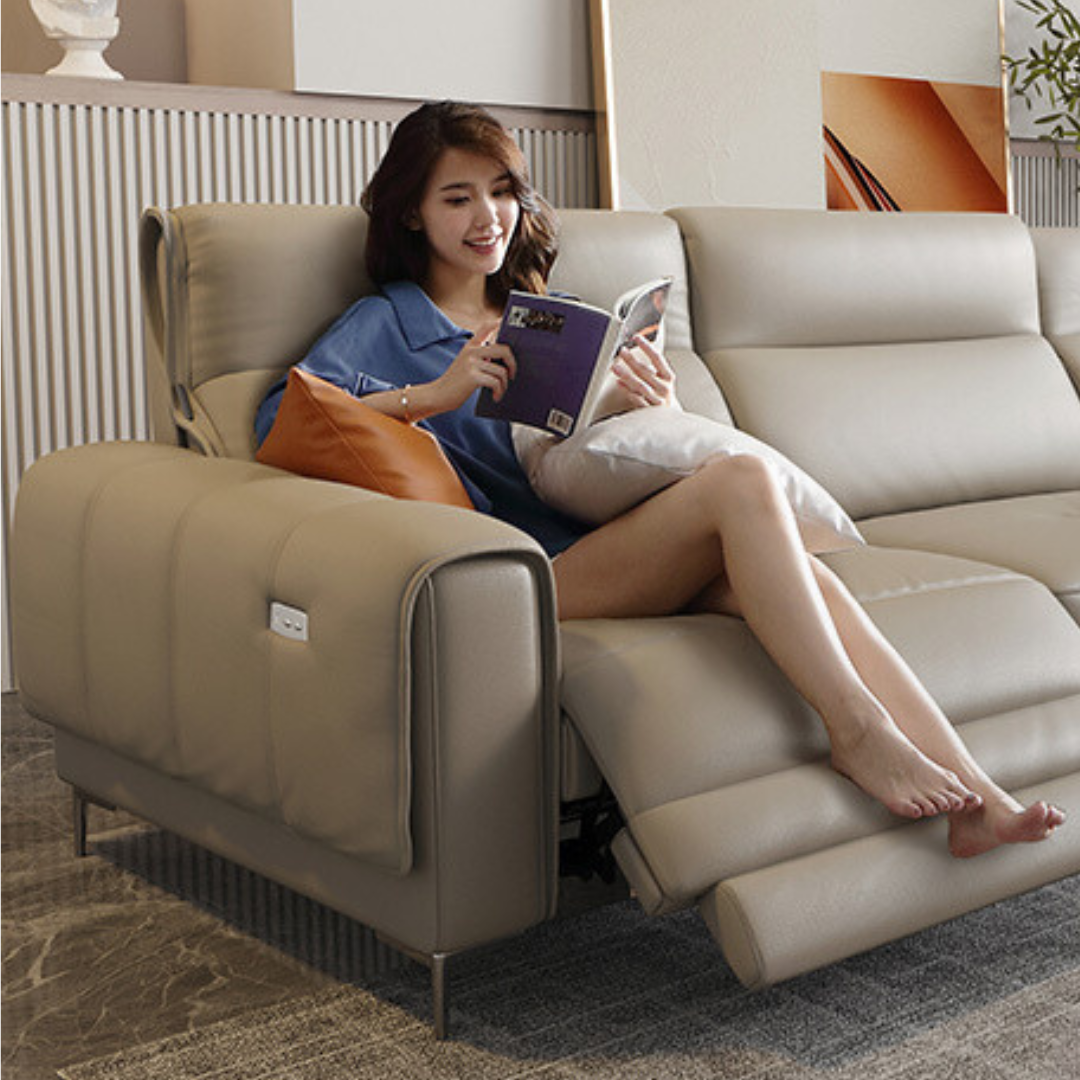Consumers are protected under several laws in Singapore.
The most relevant is the Lemon Law for furniture buyers. Read this before buying any furniture.
The following in black are extracts from the MTI website. Our comments and additions are in red. The lemon law is covered under an amendment to the Hire Purchase Act. This article is to specifically help furniture hunters and not for other products. This is not a legal reference. Consult a lawyer if you need to go to court.

Image source: MTI
What are Lemon Laws?
“Lemon Laws” refer to consumer protection laws that provide remedies for consumers against defective goods, colloquially known as “lemons”. These are goods that fail to meet standards of quality and performance, even after repeated repair.
Recent Changes to Singapore’s “Lemon Law”
Under the existing law, a consumer is entitled to reject the goods and obtain a refund when they are not of satisfactory quality at the time of delivery. The new legislation, expected to take effect from September 2012, provides more options for both consumer and retailer in the form of the additional remedies of repair, replacement, and reduction in price for the purchase of goods, including hire purchase agreements. Goods include second-hand goods, discounted goods and perishable goods. It does not apply to contracts of hire (such as rental goods), the supply of services or the sale of real property (i.e. land, buildings and fixtures). The key changes are as follows:
The lemon law does not apply to expatriates renting furniture. Rental is also a service and the lemon law is not applicable.
Furniture repair and servicing of old furniture (older than 6 months) is also not covered by these laws.
If someone bought furniture for his cafe or restaurant or business this law is not applicable. These laws are specifically for consumers. Business to business transactions are not covered by the Lemon Law.
1. New rules for repair or replacement of goods:
The retailer may offer to repair or replace the defective goods, and should do so within a reasonable period of time and with minimal inconvenience to the consumer. In some cases, repair and replacement are not possible or reasonable (See Example 1). The consumer may instead keep the defective goods and ask for a reduction in price (estimated to be the difference between the value of the product in its contracted condition and the value of the product in the faulty condition) (See Example 2). Alternatively, the consumer may request to return the product for a refund. The refund amount may be reduced to take into account the use that the consumer has had of the goods. If the item has never worked, a full refund should be made.
A consumer cannot demand an immediate refund. The consumer has to give the supplier an opportunity to repair, replace or offer a discount.
Delivery charges, if separated cannot be refunded as delivery is a service and not covered under the Lemon Law. Many companies may not deliver your furniture free of charge after repair or replacement. Delivery is not mandatory. Most premium brand companies will provide delivery for repair and replacement.
If the seller indicates that is takes 12 weeks to manufacture a sofa in the sales contract, the seller can assume that 12 weeks is a reasonable time to provide a replacement.
For external cosmetic defects the consumer has little recourse after delivery. Markings have to be highlighted as soon as possible. After a reasonable time has been given for inspection on delivery the consumer loses right to claim that the goods are defective. So please check your purchase carefully before dismissing your delivery guy. It is fair expectation for furniture surfaces to be marked or worn during use. Companies with better reputations may give a full on site service for few days after purchase. Literally no companies give surface warranties.
2. Clearer rules on burden of proof
The new draft legislation would also provide clearer rules on the burden of proof. If a defect is found within six months of delivery, it is assumed that the defect existed at the time of delivery, unless the retailer can prove otherwise (See Example 3), or if such a presumption is incompatible with the nature of the goods (e.g. perishable goods would not be expected to last longer than their normal shelf life). If the defect is found after six months of delivery, it is for the consumer to prove that the defect existed at the time of delivery.
Furniture defects are usually structural or mechanical. But this will not apply if the furniture is a knock-down or flat-packed design, and assembled by the consumer. This is an added liability for consumers buying from online sites. Many products from online sites are knocked down for easy delivery. The retailer can easily prove the assembly carried out by the consumer was incorrect and therefore caused any damage.
What Consumers Should Know
Consumers can use the new remedies of repair and replacement that the proposed amendments to the law would provide for. However, a consumer must give the retailer a reasonable time to comply with the requested remedy (e.g. replacement or repair) before seeking an alternative remedy (such as refund or reduction of price). The new draft legislation would not replace the existing protection available, such as guarantees/warranties, retailers’ own return policies, and existing remedies under other legislation (such as the Sale of Goods Act) or the common law.
When a consumer buys a piece of furniture from a showroom it can be safely assumed that he or she is transacting a Sale by Sample. There is reasonable expectation that the goods delivered will be of similar quality. Consumers should inspect the showroom piece carefully and ask permission for photos to be taken of the sample once the sale is made.
When a consumer buys a piece of furniture online it can be safely assumed that he or she is transacting a Sale by Description. There is reasonable expectation that the goods delivered will be of similar quality as described. Consumers should read the product information carefully and print out all online descriptions before purchasing. This is just as important than the standard terms and conditions of the purchase. Descriptions can be easily changed online so print or screenshot the descriptions immediately after purchase.
Consumers are not entitled to a remedy if they damaged the item, misused it and caused the fault, or tried to repair it themselves or had someone else try to repair it, which damaged the item. The remedies are also not available if the consumer knew about the fault before they bought the goods, or if they simply changed their mind and no longer want the item.
Furniture sold as floor samples or display pieces or repaired pieces or as is are assumed to be damaged goods and therefore sold at a discount. Buyers of such furniture should photograph their purchases and have their purchases wrapped immediately. Otherwise there is little recourse for them.
Settling Disputes
In the vast majority of cases, the consumer and retailer reach a satisfactory solution without resorting to legal action. Both retailers and consumers typically want to avoid lengthy disputes. Consumers may approach the Consumers Association of Singapore (CASE) to seek guidance on whether their claim is reasonable. In cases where legal action is required, consumers may seek recourse through the Small Claims Tribunals, which can hear claims of up to $10,000 (or $20,000 by agreement of the parties).
Threatening a retailer with immediate legal action if you do not get a refund is not advisable and can be construed as a threat. Start off with an amicable replace or repair approach. A retailer has the right to refuse service if abused.
Writing nasty things on a retailer's social media sites can get a consumer into trouble. When there is an ongoing dispute the consumer has not been proven right. Unproven comments can lead to defamation suits. Both parties should use the proper channels for settling issues.
The Lemon Law and Sales of Goods Act also protects the retailer. For purchase of furniture from showrooms and online there is no cooling off period of 5 days. Cooling off periods are applicable only to certain scenarios, such as unsolicited direct sales.

Examples of Cases Where Consumers May and May Not Seek Remedies
Example 1 - If the customer’s request for repair or replacement is not possible or reasonable, retailer may consider a refund or discount.
- If a table was only worth $50 and a repair would cost the retailer $75, then the retailer could decline such a request and offer a replacement, assuming he had a similar model of similar age in stock or had prompt access to one.
- If he had neither, then he could refuse both repair and replacement and instead provide the discount or refund remedy.
- The consumer cannot claim for more than the value of the goods.
Example 2 - Clearer rules on burden of proof.
- In the first six months, a consumer can claim that a fault was present at the time of the sale and hence argue that the good was not of satisfactory quality and thus seek redress.
- If the retailer rejects this view, the consumer could take the matter to court. The judge will then look to the retailer to refute the presumption of unsatisfactory quality with reasonable evidence.
- The retailer might attempt this by, for example, expertly analysing the good to show it was damaged by the consumer e.g. where the leather sofa had not been properly maintained, causing the leather to crack.
Example 3 - Goods have to conform to their description and be of satisfactory quality.
- A three-seater sofa should be able to seat three adults of reasonably expected weight without breaking.
- If someone buys a self-assembly wardrobe and a panel is missing, then the goods are incomplete and do not conform to the contract.
- If someone buys a self-assembly wardrobe and fixes it wrongly, then the goods cannot be considered defective.
Example 4 - Goods should be “fit for purpose”.
- If a consumer tells the retailer that an item is needed for a particular purpose, the goods are deemed to be not conforming to the contract if it is unfit for that particular purpose.
- For example, if a consumer says he wants an outdoor chair for wet weather conditions, and the retailer sells him an indoor chair.
- If sales representative tells a consumer that the software used on Apple computers was compatible with a Windows PC but it was not the case, it does not conform to the contract.
- However, if no mention had been made about its compatibility with the Windows PC and the software was bought on the consumer’s own assumption that it was compatible, the consumer would not be likely to have grounds for complaint.
- If a consumer buys a mattress, and then goes to another place to purchase a bed frame but fails to inform the sales person that the mattress is non- standard in size, the consumer cannot claim that the bed frame is not fit for use.
Example 5 - Reasonable expectations of second-hand goods.
- Someone buying a display piece sofa recliner could not reasonably expect it to perform like a new sofa recliner.
- However, he could expect it to perform in a manner that may be reasonably expected of a product of that usage and model.
- If it does not perform as reasonably expected, the consumer can seek remedies from the seller.
- However the consumer cannot expect a product in pristine condition.
- If a consumer purchases a display furniture set at an "As Is" warehouse sale the consumer has to expect the product to have experienced some usage. Markings and scratches are reasonably expected.
In summary:
-
Consumers are not entitled to a remedy if they damaged the item, eg the defect was caused by the consumer through misuse, inappropriate storage or care or unauthorized repair.
-
The fault was caused by wear and tear, or natural deterioration.
- They knew about the fault before they bought the goods.
- The goods are not defective, but the consumer simply changed his or her mind or found the item to be unsuitable for a specific purpose.
- In some cases, sellers may seek recourse against consumers and/or bar the consumers from their premises for causing a nuisance. Fraudulent claims may give rise to criminal liability.
- Sellers may offer an alternative remedy to the one demanded by the customer is unreasonable.
- Lemon Laws provide remedies against goods that fail to conform to contract at the time of delivery. (So please read our terms and conditions carefully. If you are unsure about any of the terms and conditions please email us).














